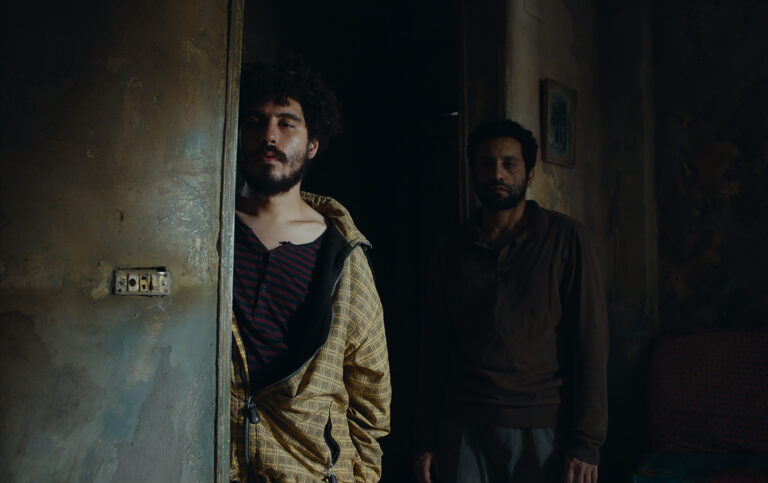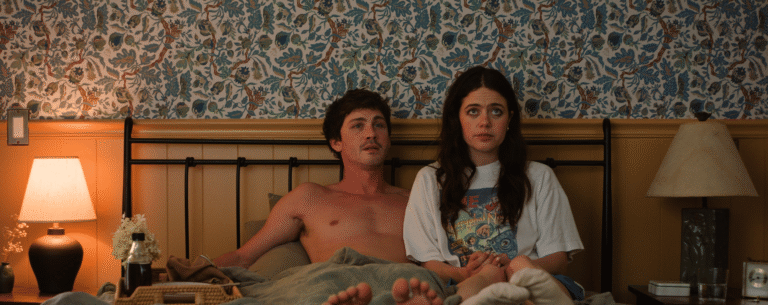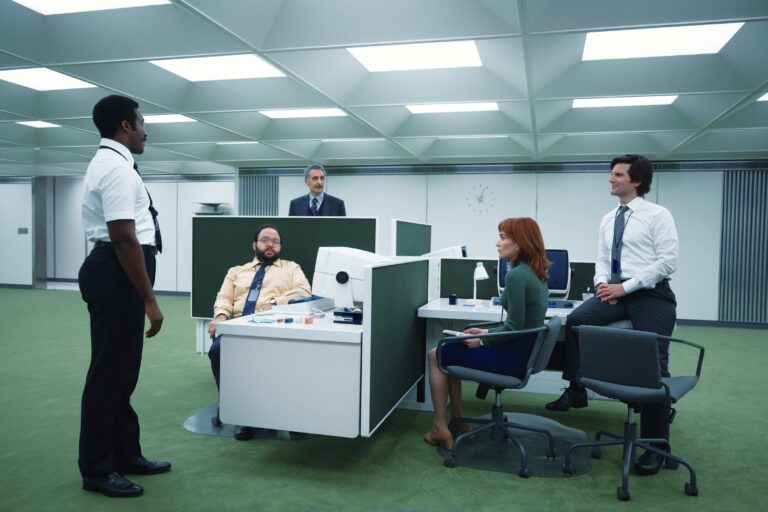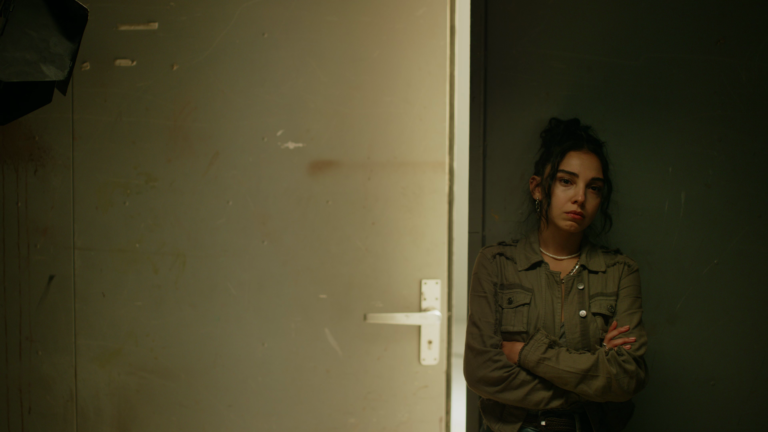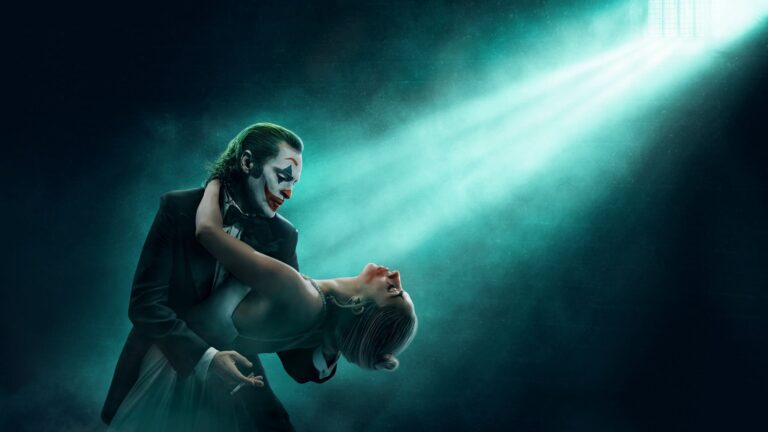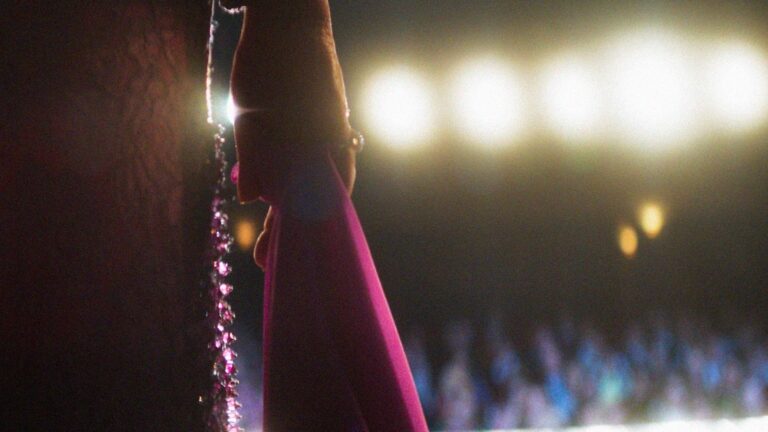50 Meters: An Anxiously Brave Conversation with a Father
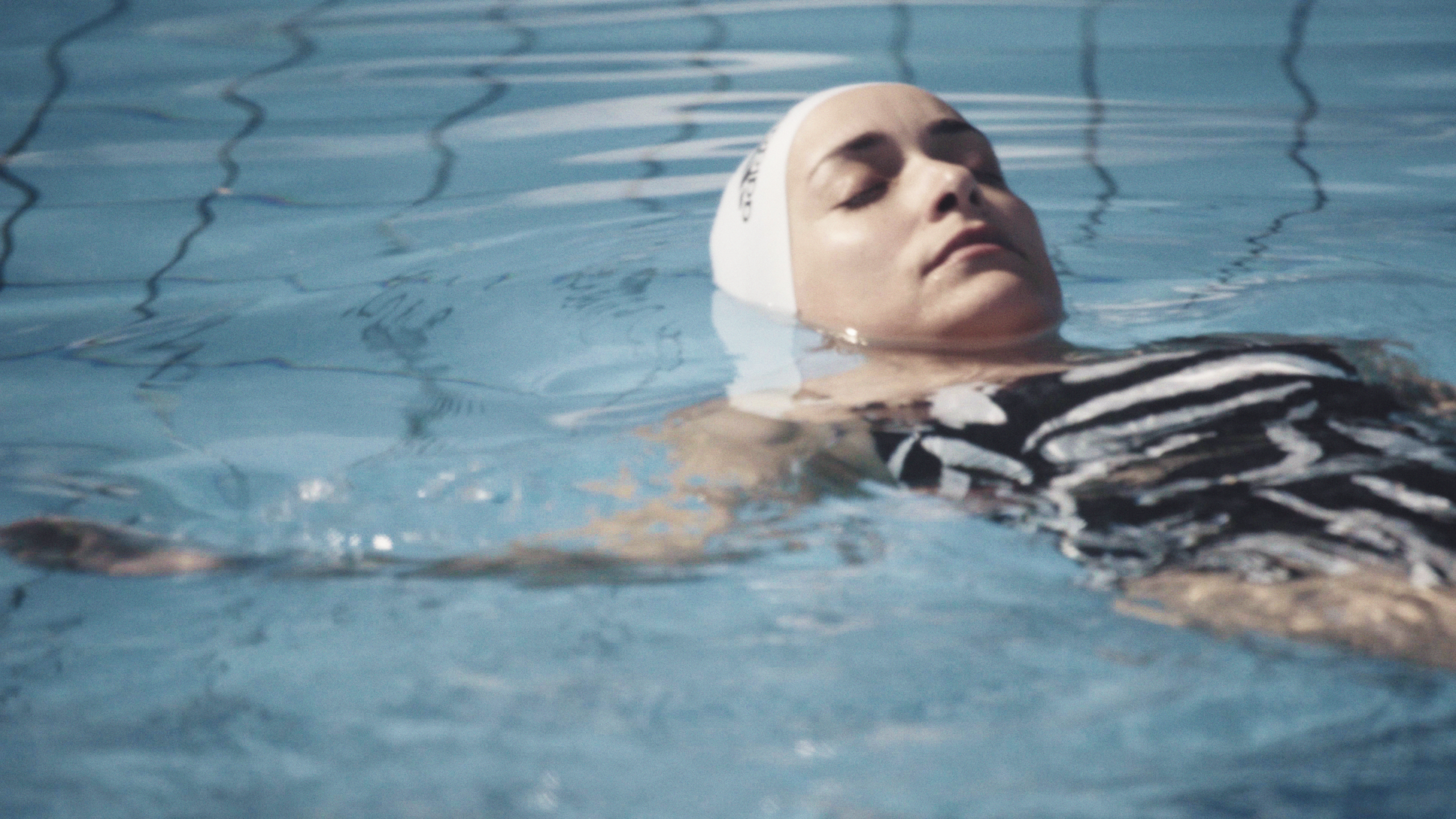
By
The following statement is a compliment, and a huge one: “50 Meters” is a very frustrating watch, to the point that it is “about” that frustration itself. That might sound pretentious describing a documentary about a club of elderly male swimmers in Maadi, that has early on a beautifully contemplative scene where the camera captures the movements of their bodies, obviously old yet still graceful and acrobatic.
But to accurately describe “50 Meters”, Youmna Khattab’s directorial debut, after leaving her day job and deciding to finally pursue her lifelong dream of becoming a filmmaker (all information the film provides for us), is to describe a Trojan Horse, a journey through a confused mind, where Youmna is way more honest with us, the viewers, than she was with herself and the cast of the film.
You see, this club of swimmers has Youmna’s father as a member, so the club was promised a film, from their friend’s daughter, about their hobby they dedicated their life to. It’s a woman making a film about an aspect of her father’s life, as a way to try to communicate with her father better.
The easiest way to describe “50 Meters” is: “Aftersun” but as a documentary.
The rest of the club quickly get the feeling that Youmna is giving herself too much of a role in the film, taking focus from them, and they object to that throughout the film, as the film shows us brainstorming sessions, and a sequence where we see a screening of an earlier cut and the cast’s reaction to that cut, showing us two “factions” (Youmna and The Men) trying to steer the ship, to make themselves the focus of the film.
But the most emotional part of this power play is that Youmna’s father, who is maybe the center of the whole project, doesn’t take part in it. He doesn’t object, he doesn’t fight for anything، he doesn’t even see any struggle or power play or any need for that. He is very calm, as non-caring and passive as a distant God.
At one scene, Youmna tries, in a very roundabout way, to confess to her father that she suffers from Panic Attacks. (She wants to confess, to express herself. But like any anxious person, and a person raised on loving performance, finds it hard to.) Her father takes the hint, and keeps asking about it, but his response after that is to genuinely ask, “what is there to worry about?” He tells her that their life is great and safe; he genuinely doesn’t find a reason for worry and anxiety.
That opens up another level of “Power Play” in the film. Look again at this scene: Is Youmna just trying to be honest with her father? To tell him what she is feeling and going through? Or is she trying to imply that he is, at least, one reason for that anxiety and panic attacks?
And the father’s response, is it just a different mindset? A generational difference between the anxious, weighted-down Gen Z and the previous generation from before they invented Trauma, Anxiety, and Therapy? Or is he trying to clear himself from the charges, to say he did nothing to cause this anxiety?
The film, or rather, Youmna using the medium of film, doesn’t have answers, and looks for them with us, in front of our eyes. This is a film about the search, and about the means for that search. (Which could be frustrating, both emotionally, as you refer to the back and forth and the suppressed emotions and subtle conflicts — and artistically, as you feel like you are watching a “Making Of” Documentary.)
I cannot overstate how emotionally heavy this film can be, and the things that it can make an audience member reflect on about their own life. It’s a film of shy bravery and reluctant control.
The aforementioned Power Play is an interesting paradox and the film’s most unique feature, the paradox that artists, who are the most anxious and unsure of people, can hold the sure and all-powerful hammer of art; of a woman shaping the story of a group of men; of a daughter trying to reshape the narrative of her own father.


